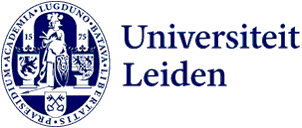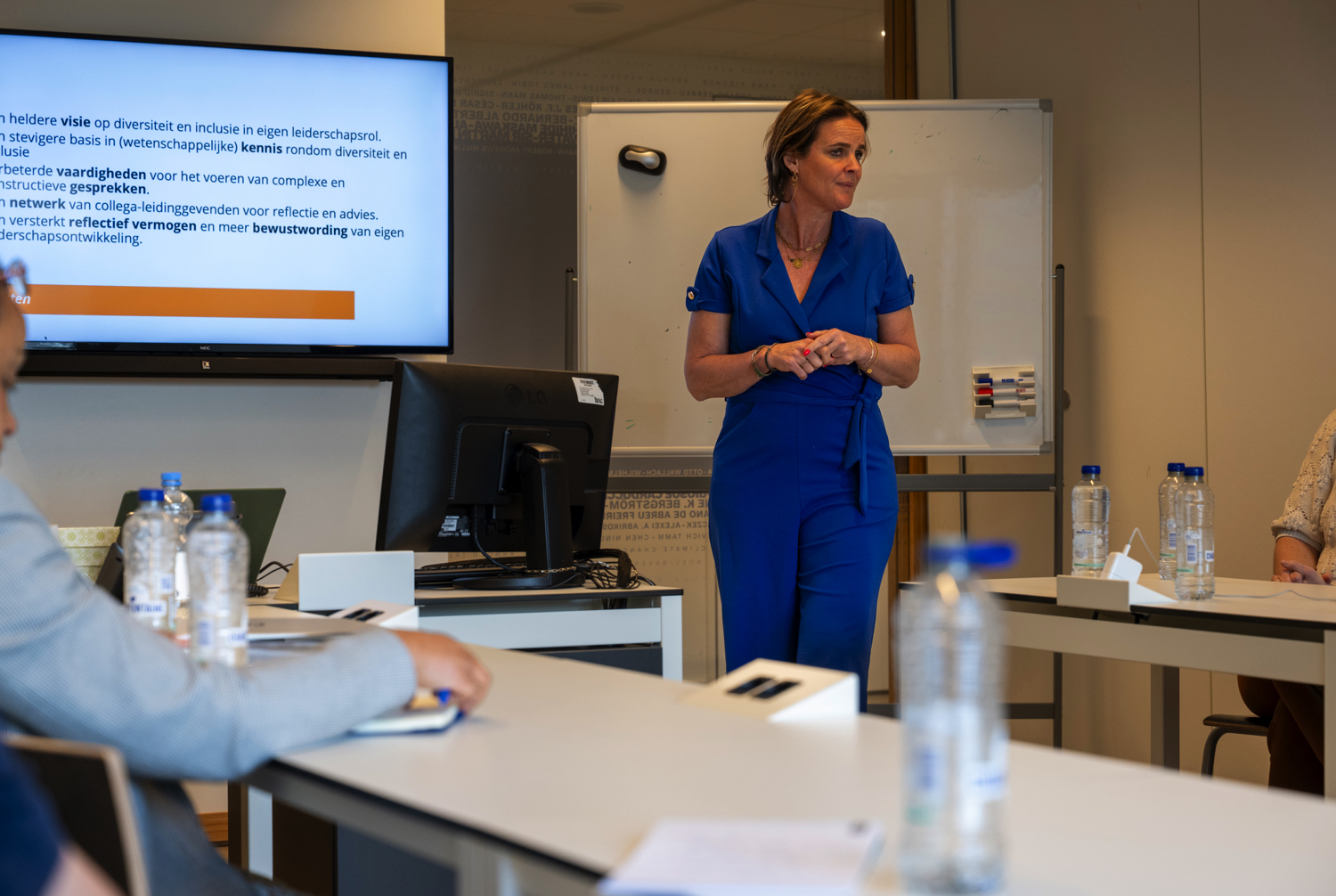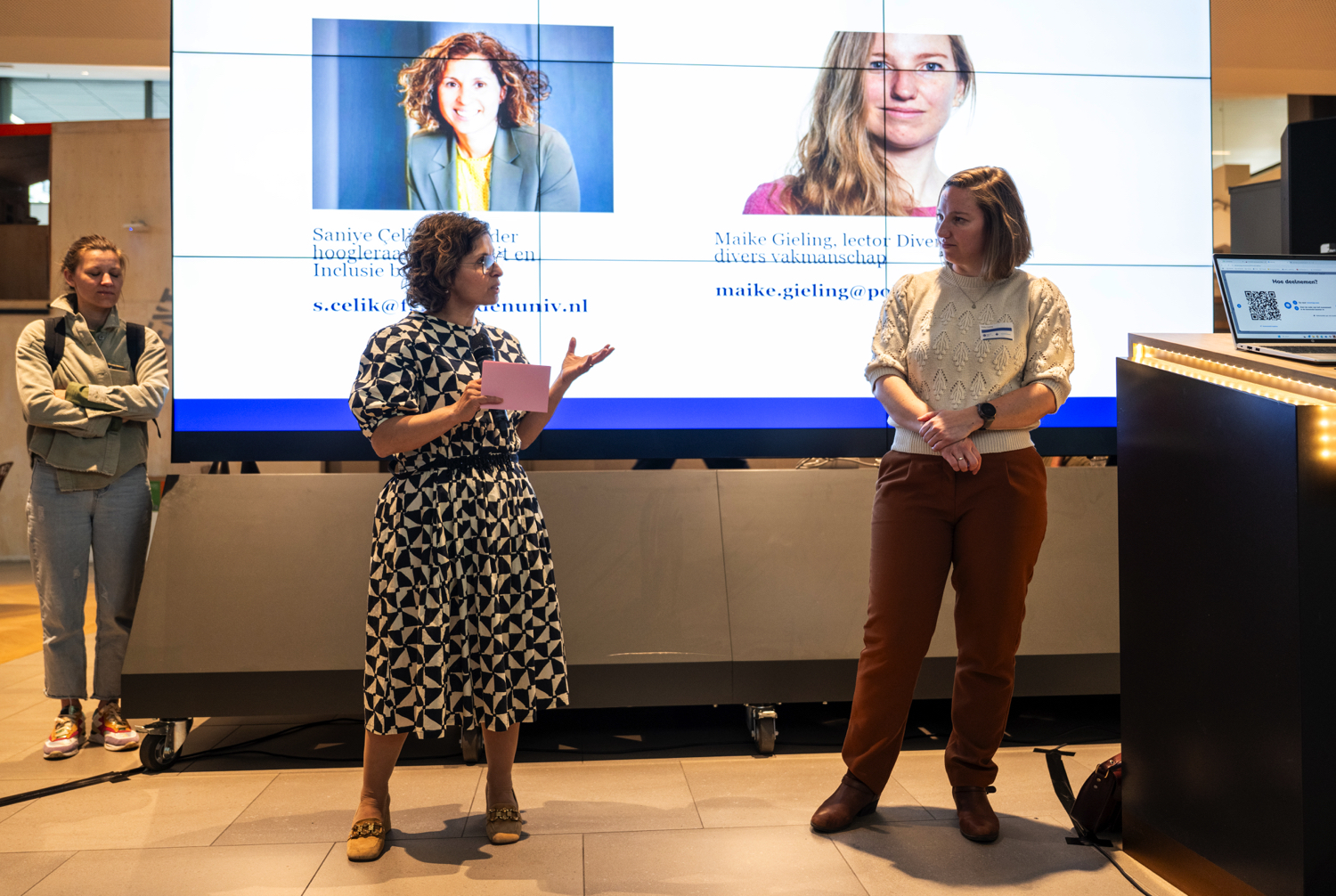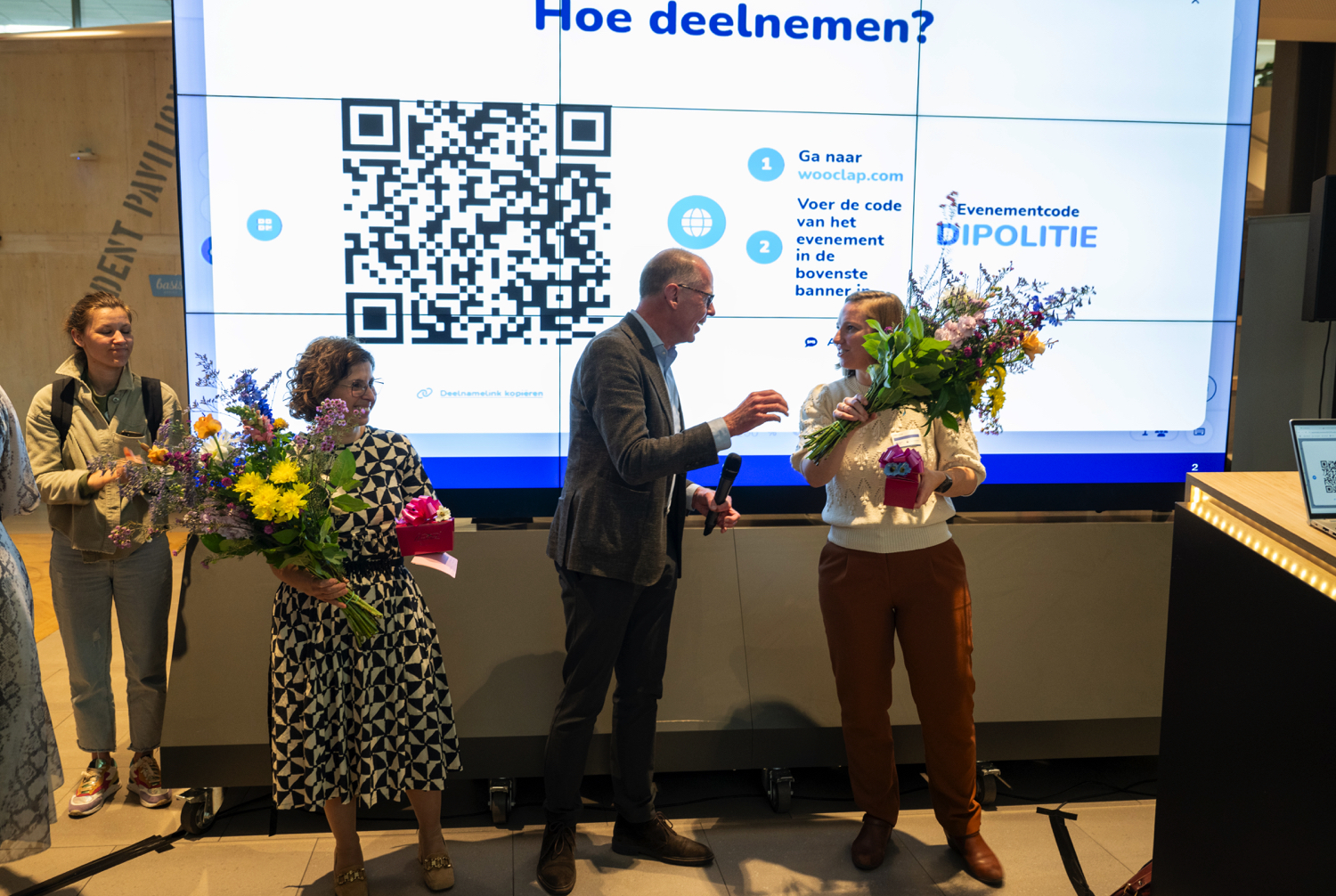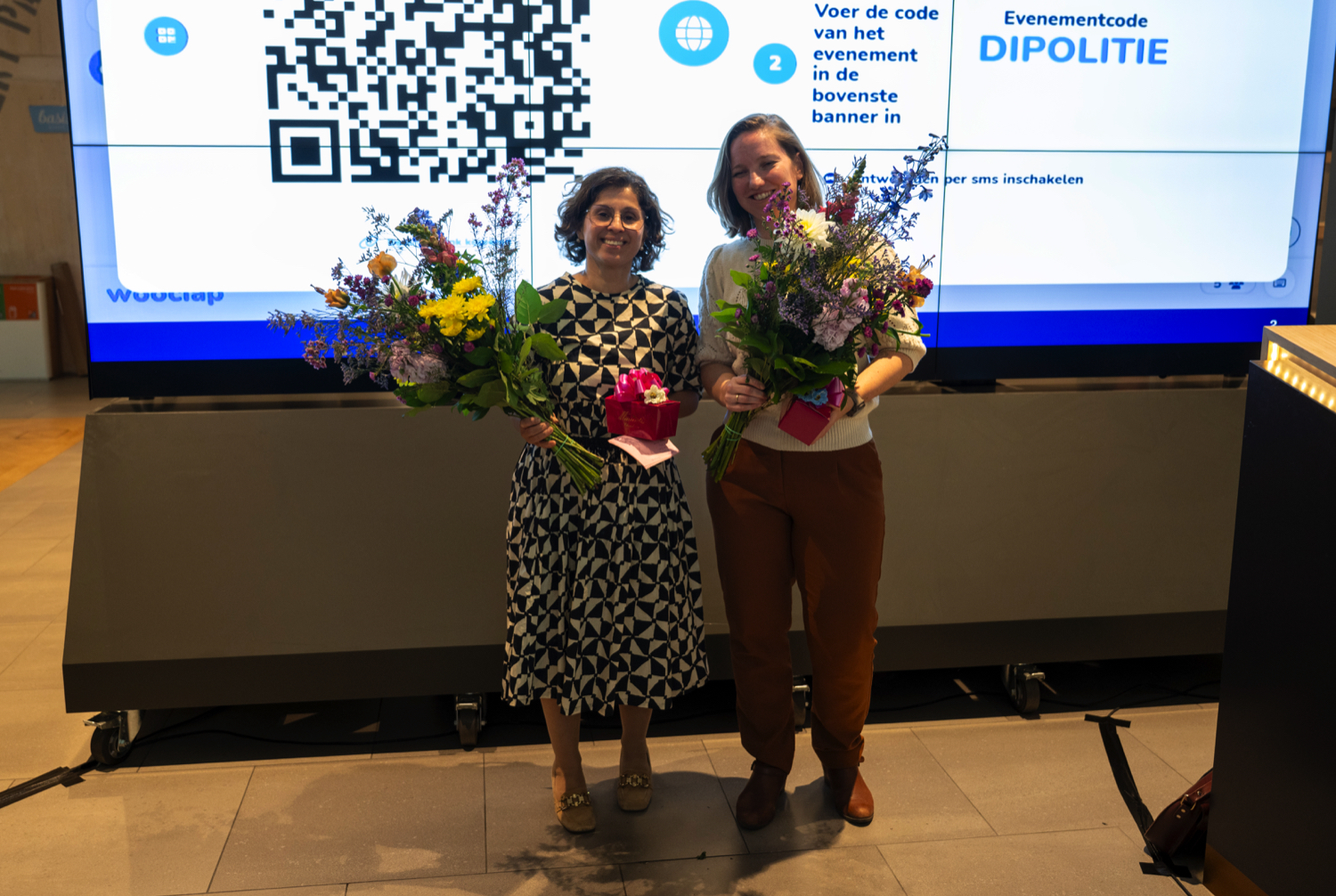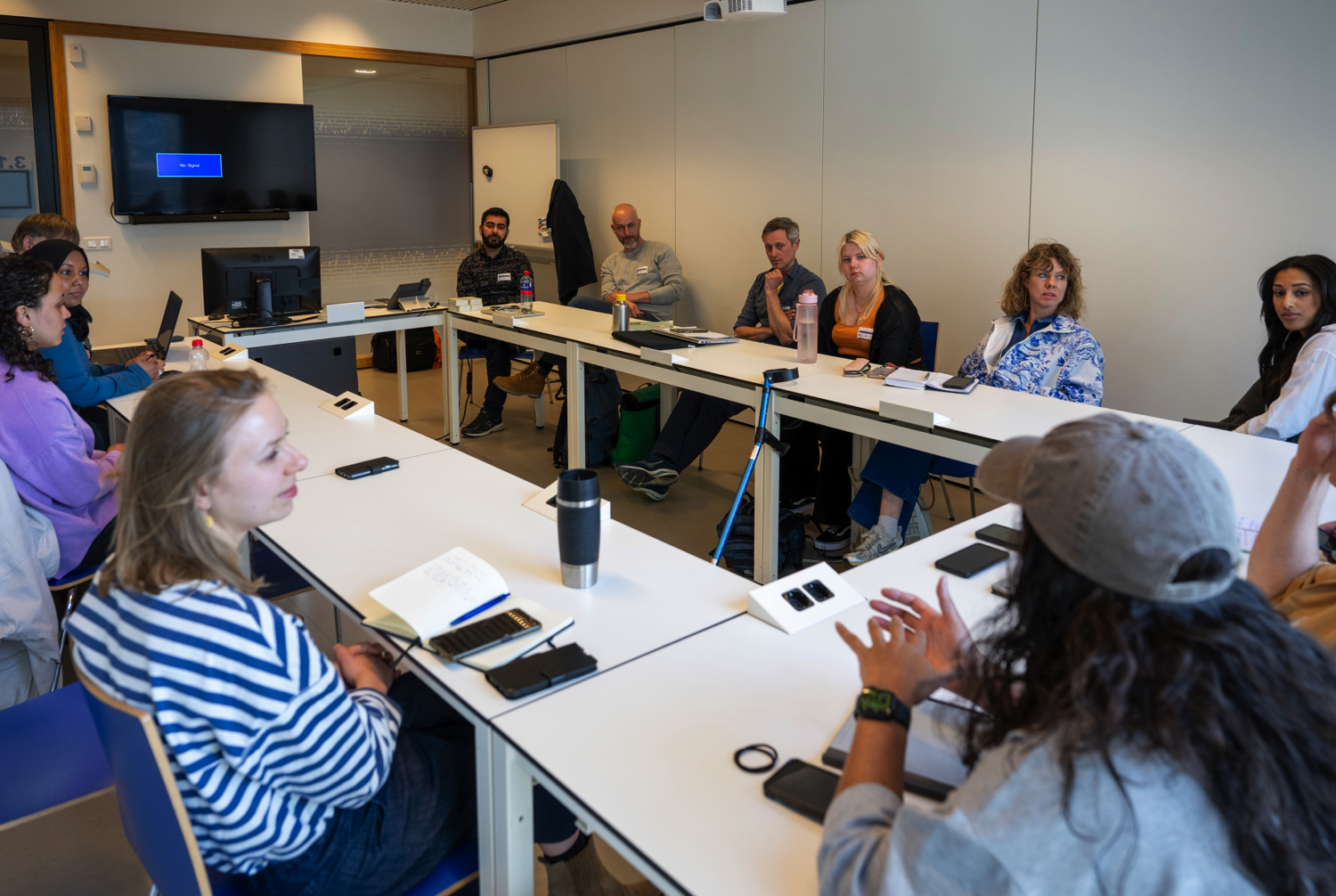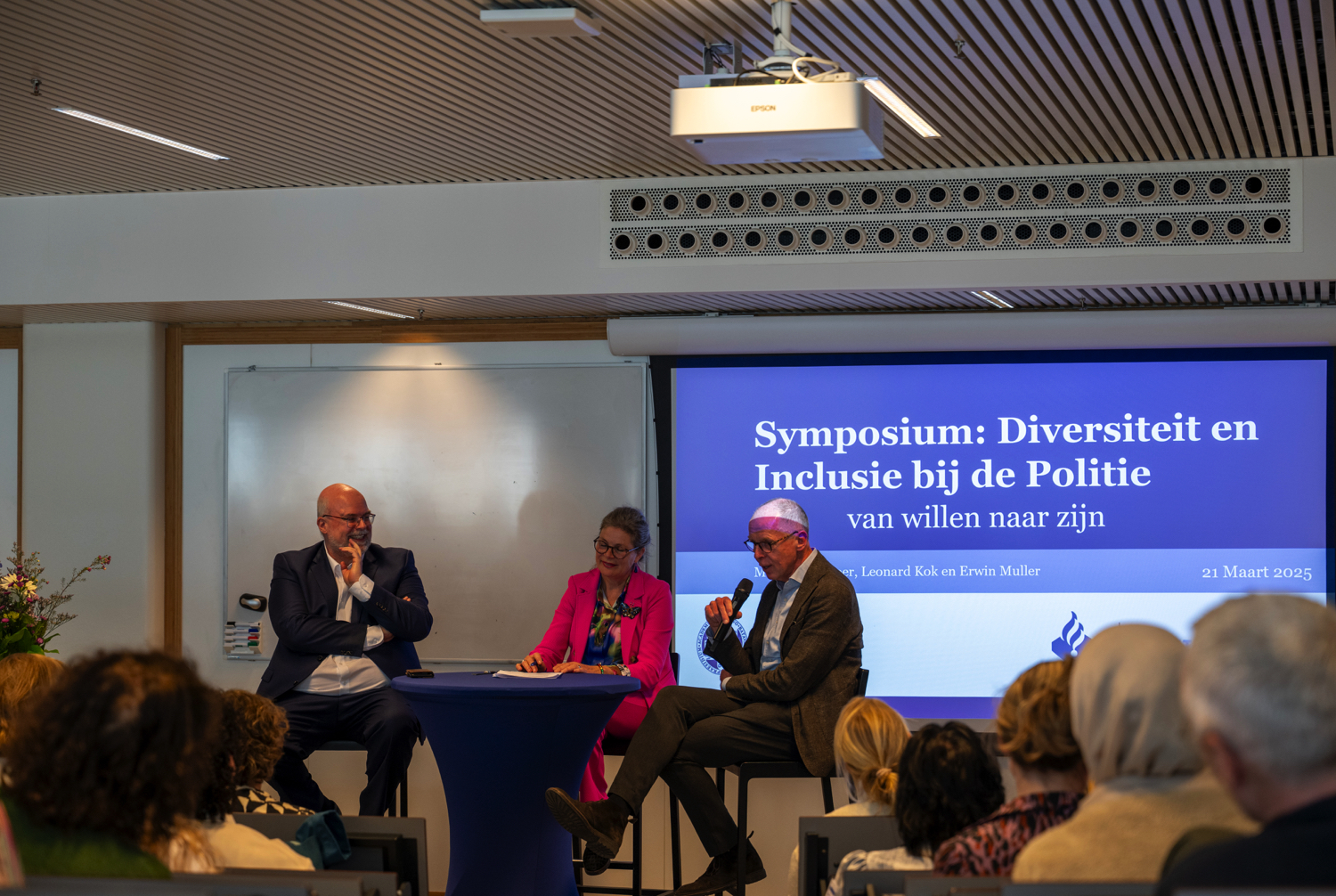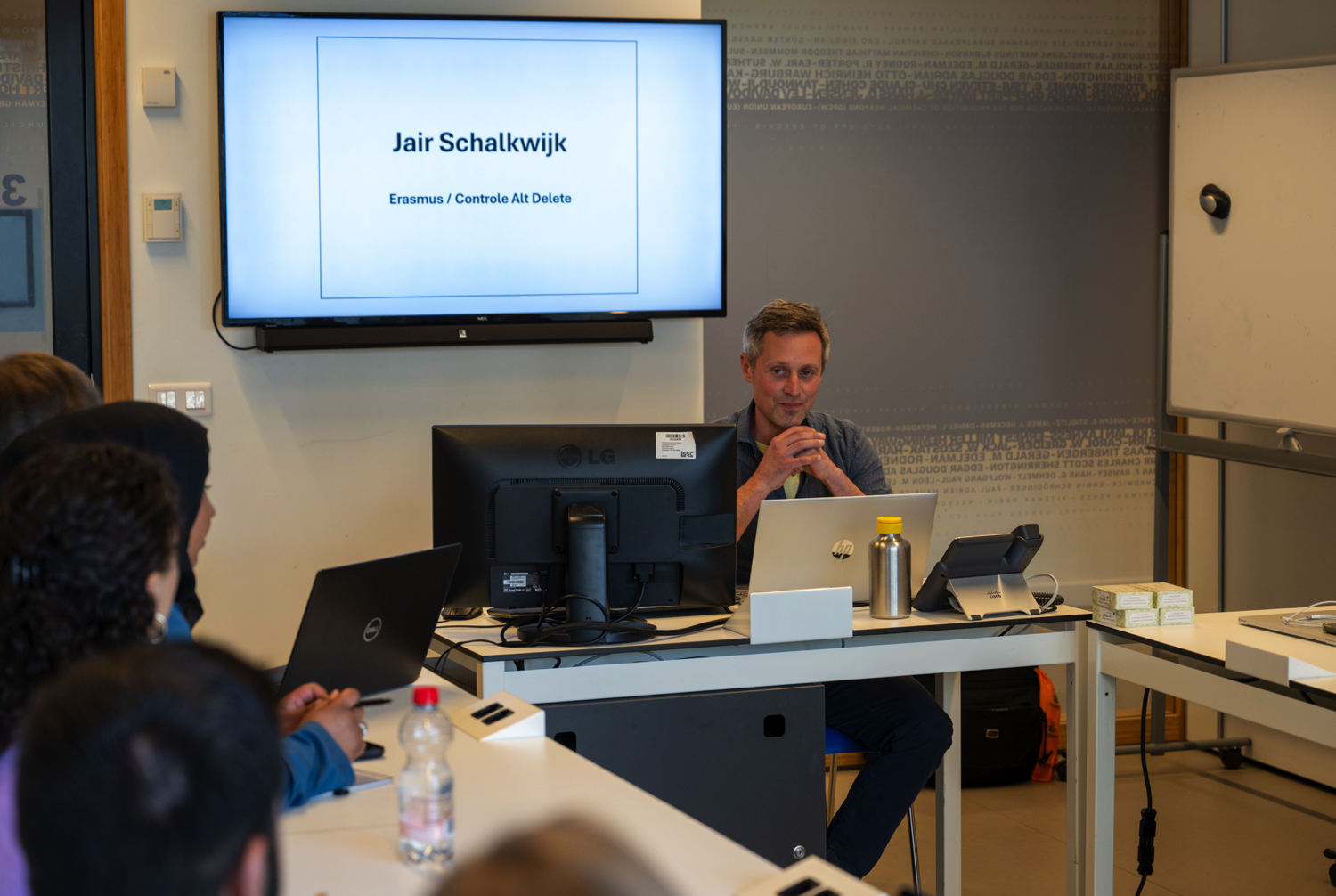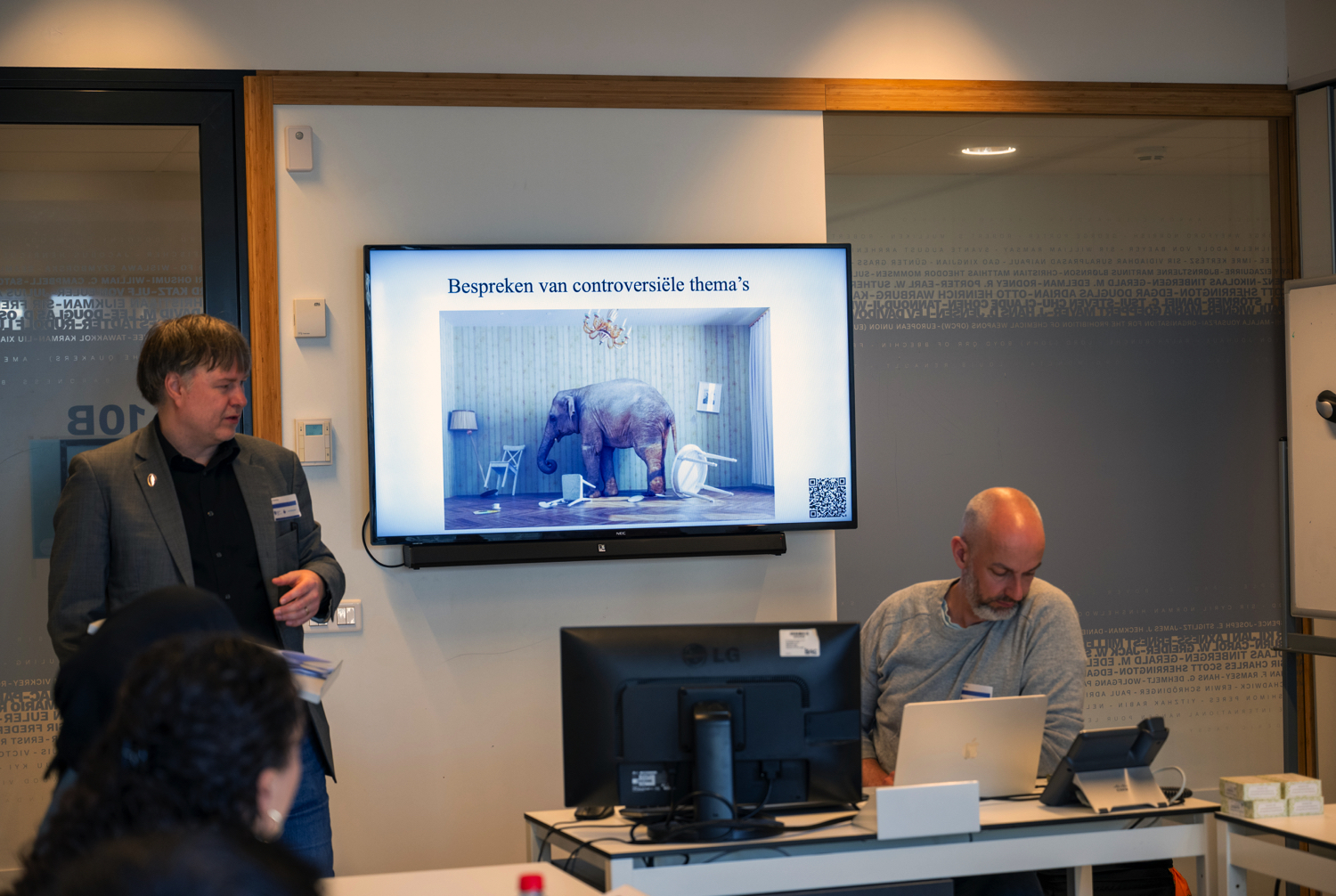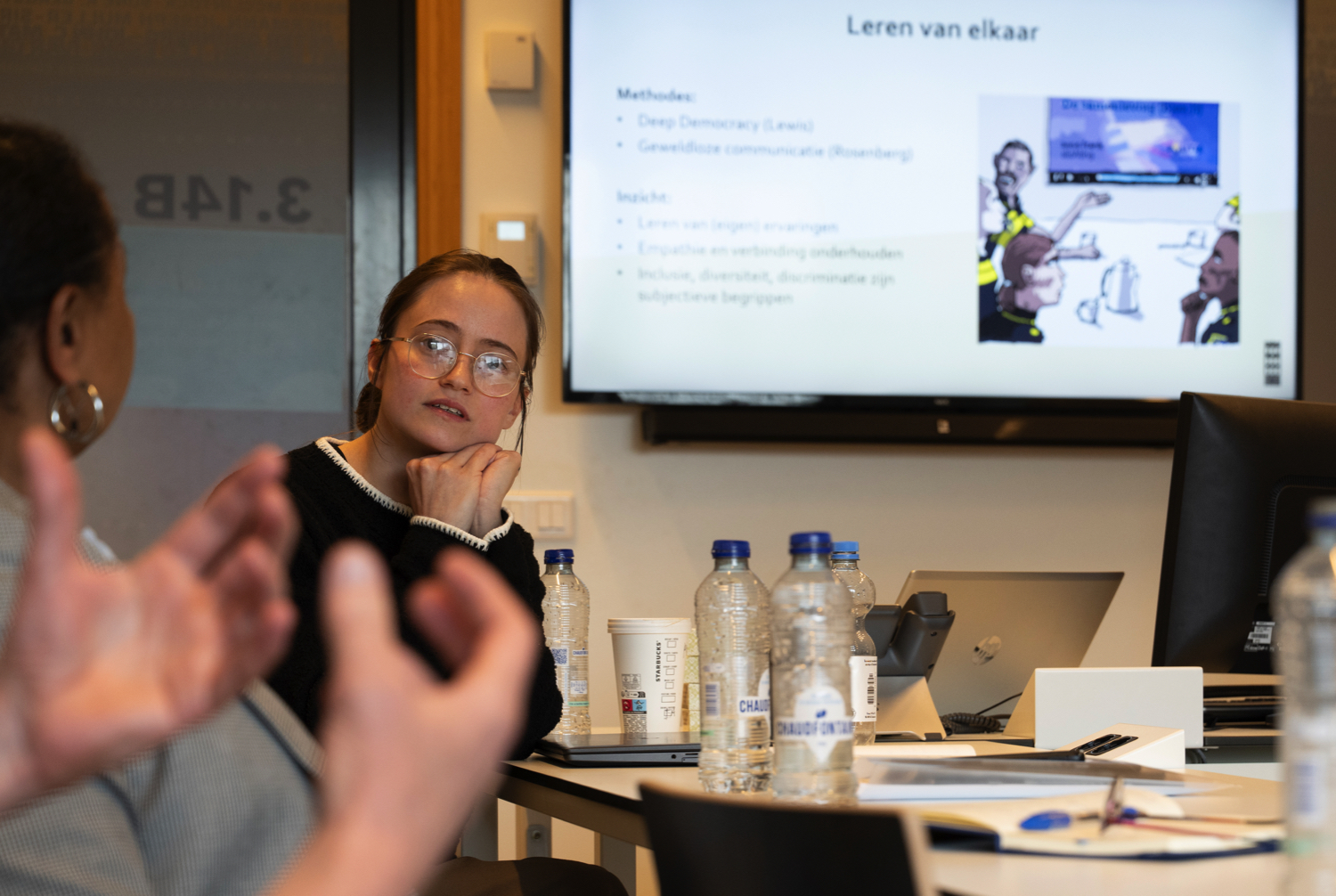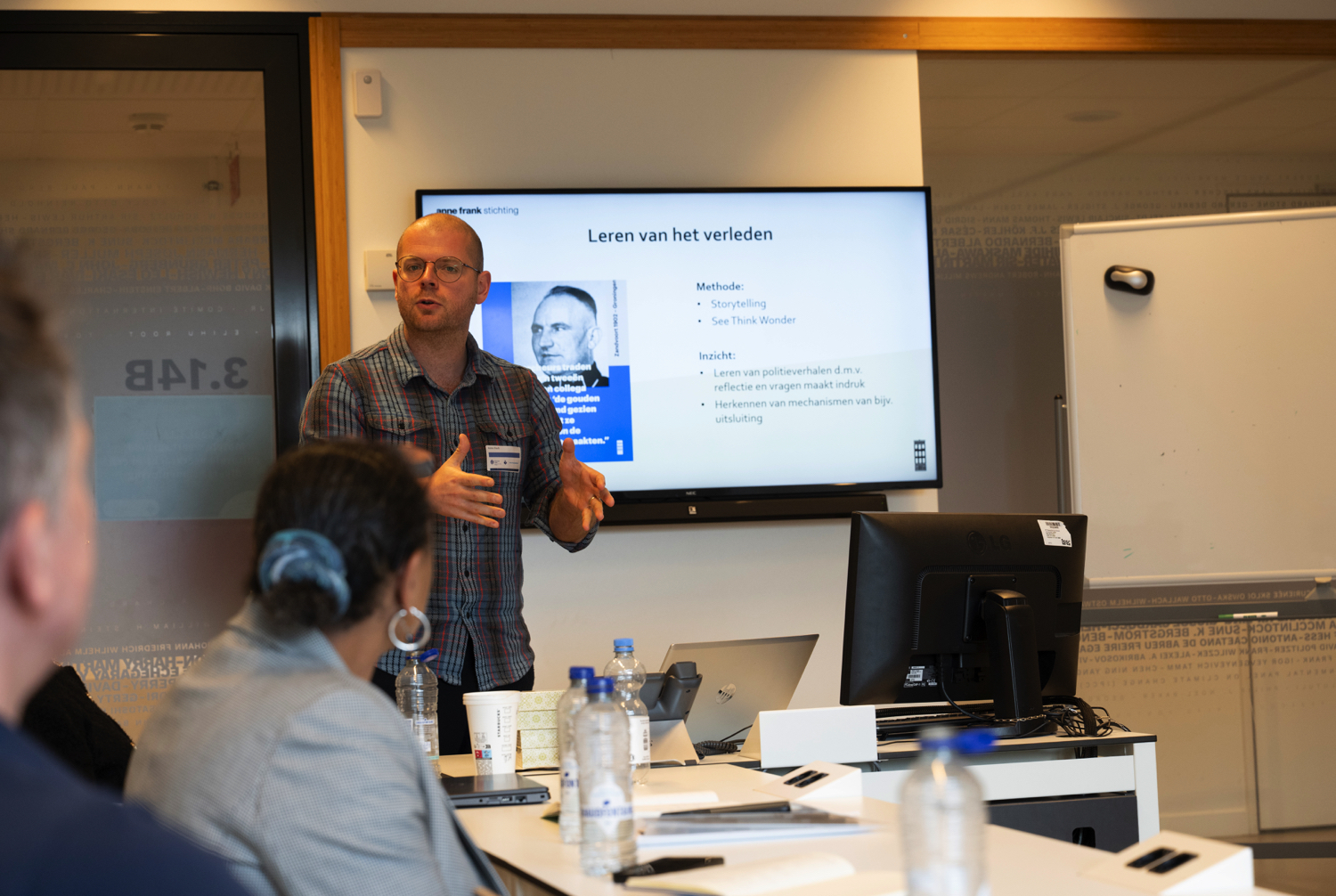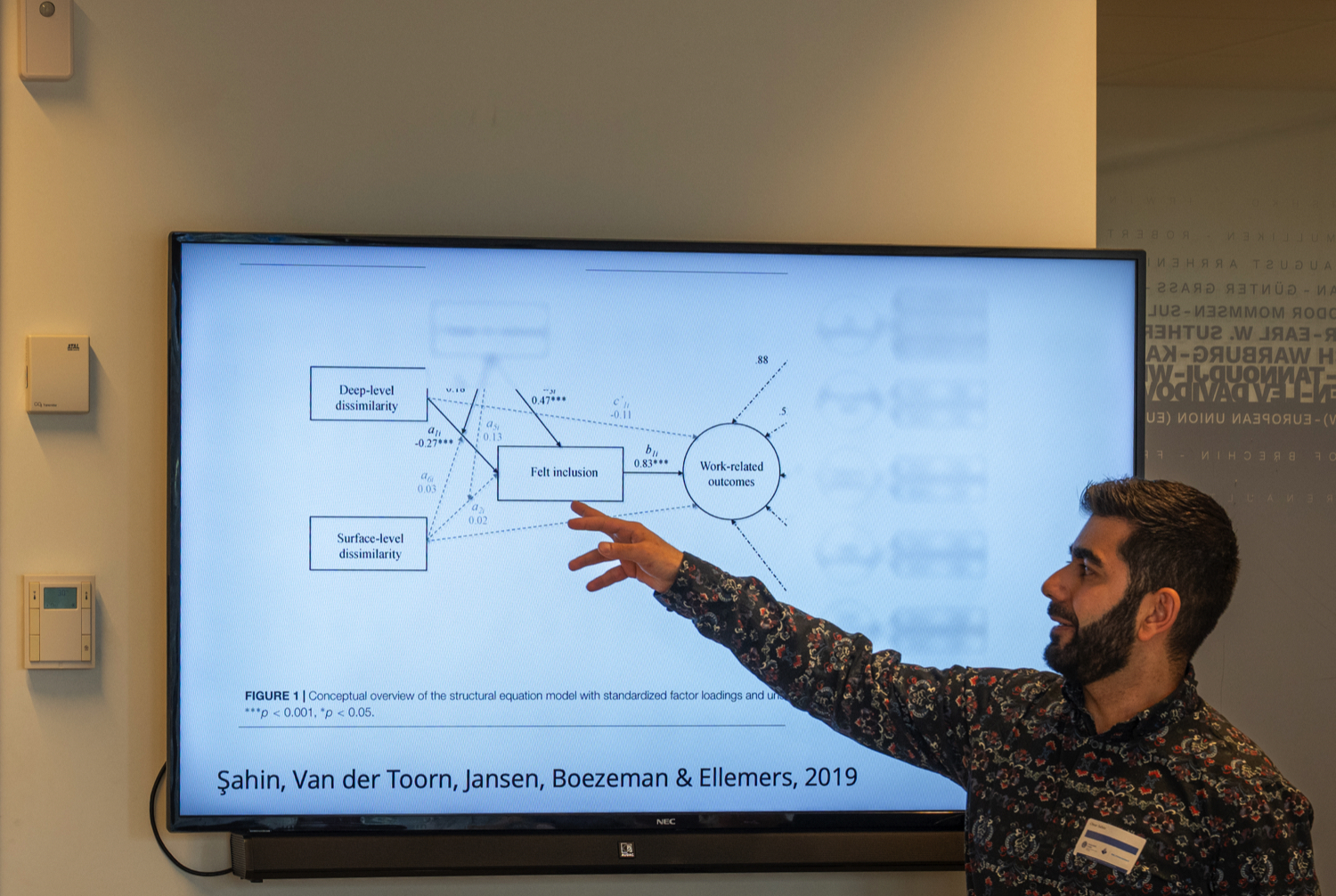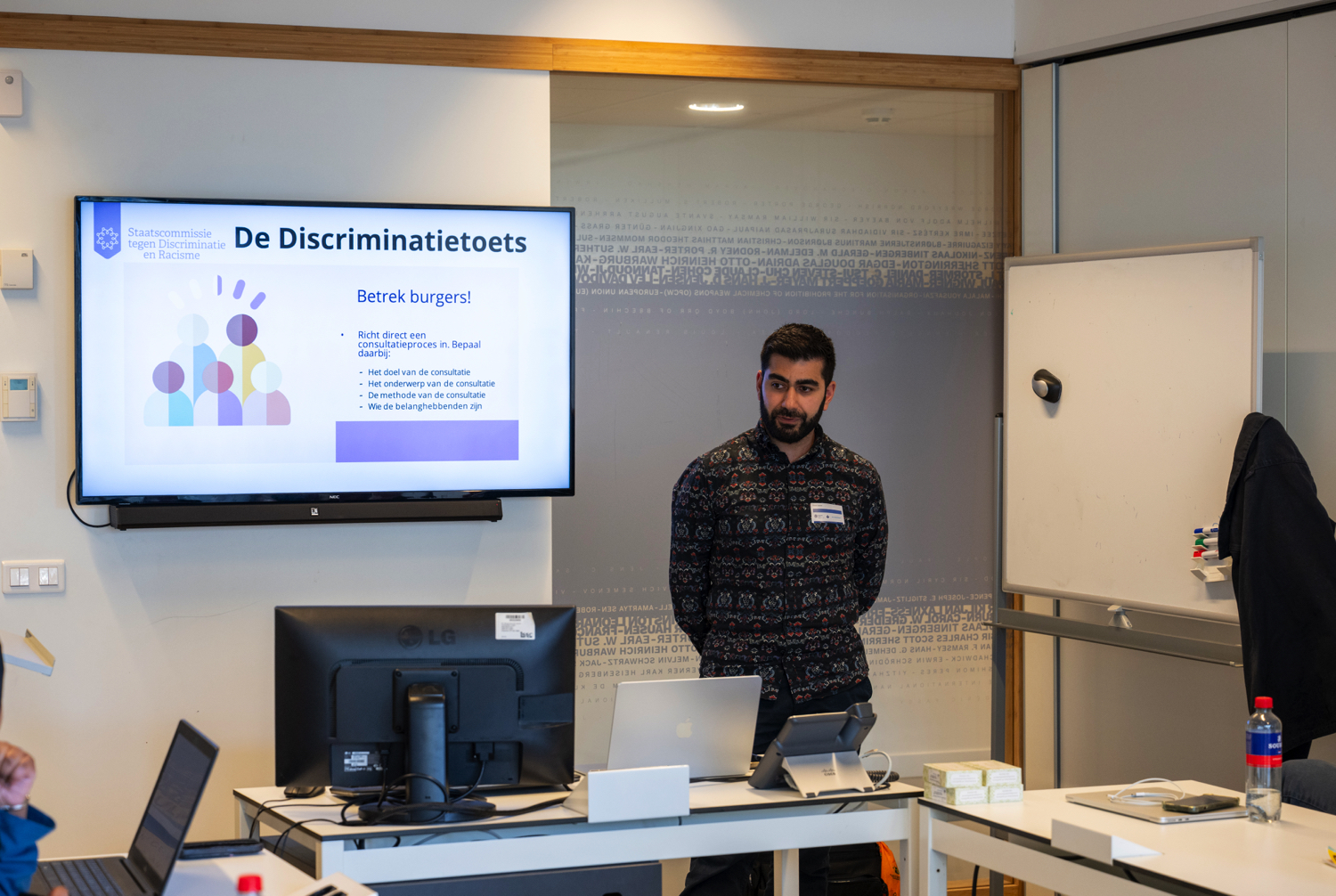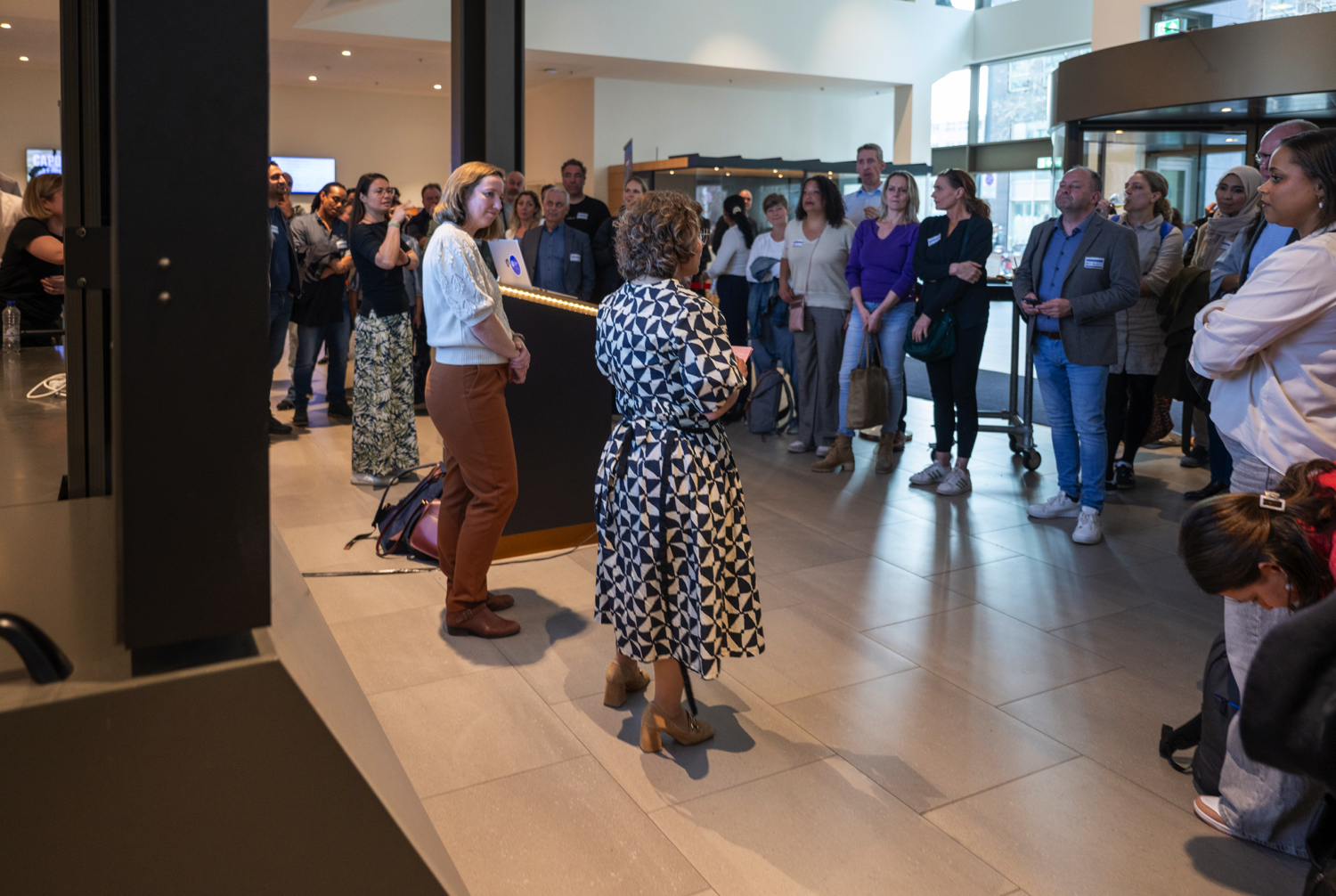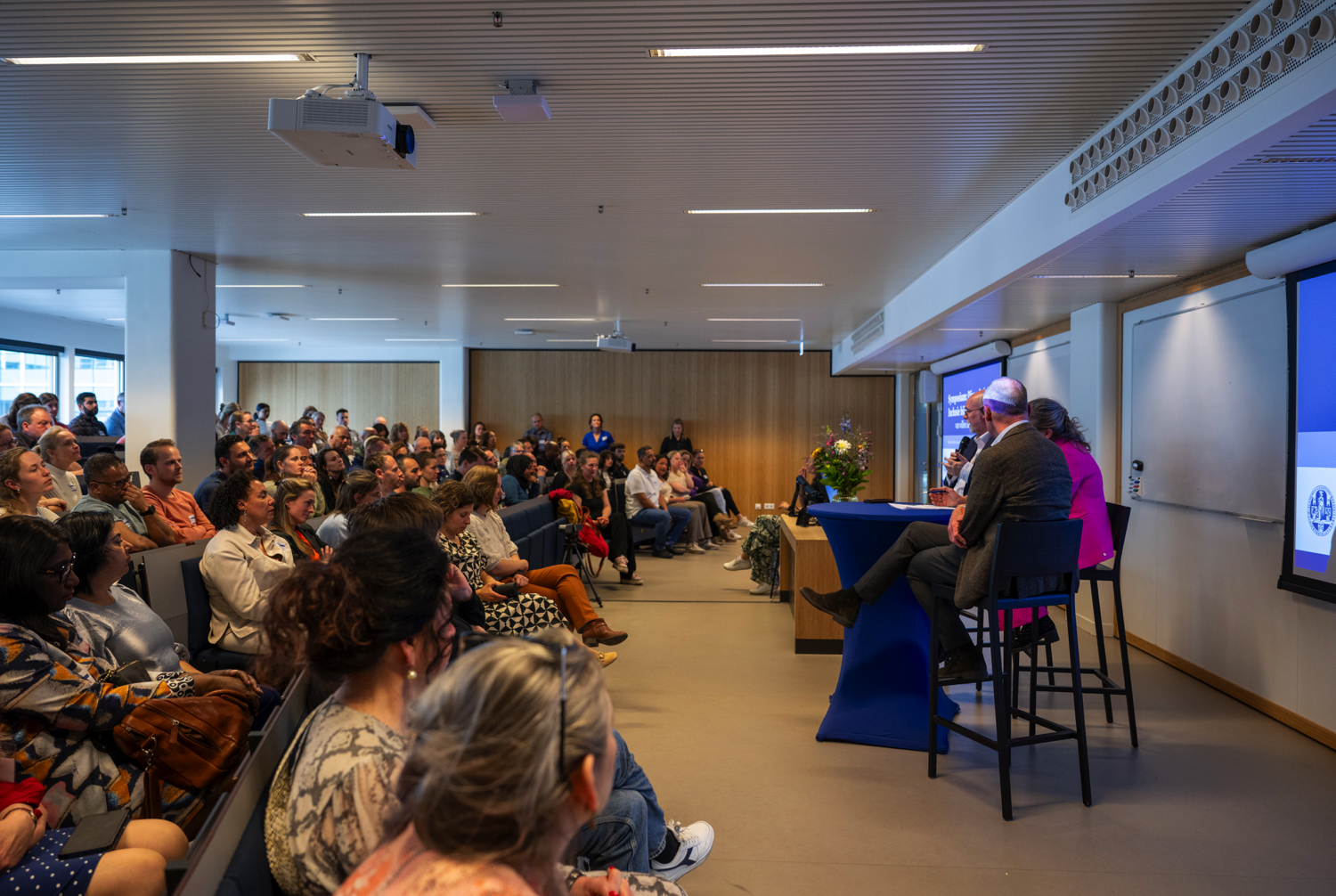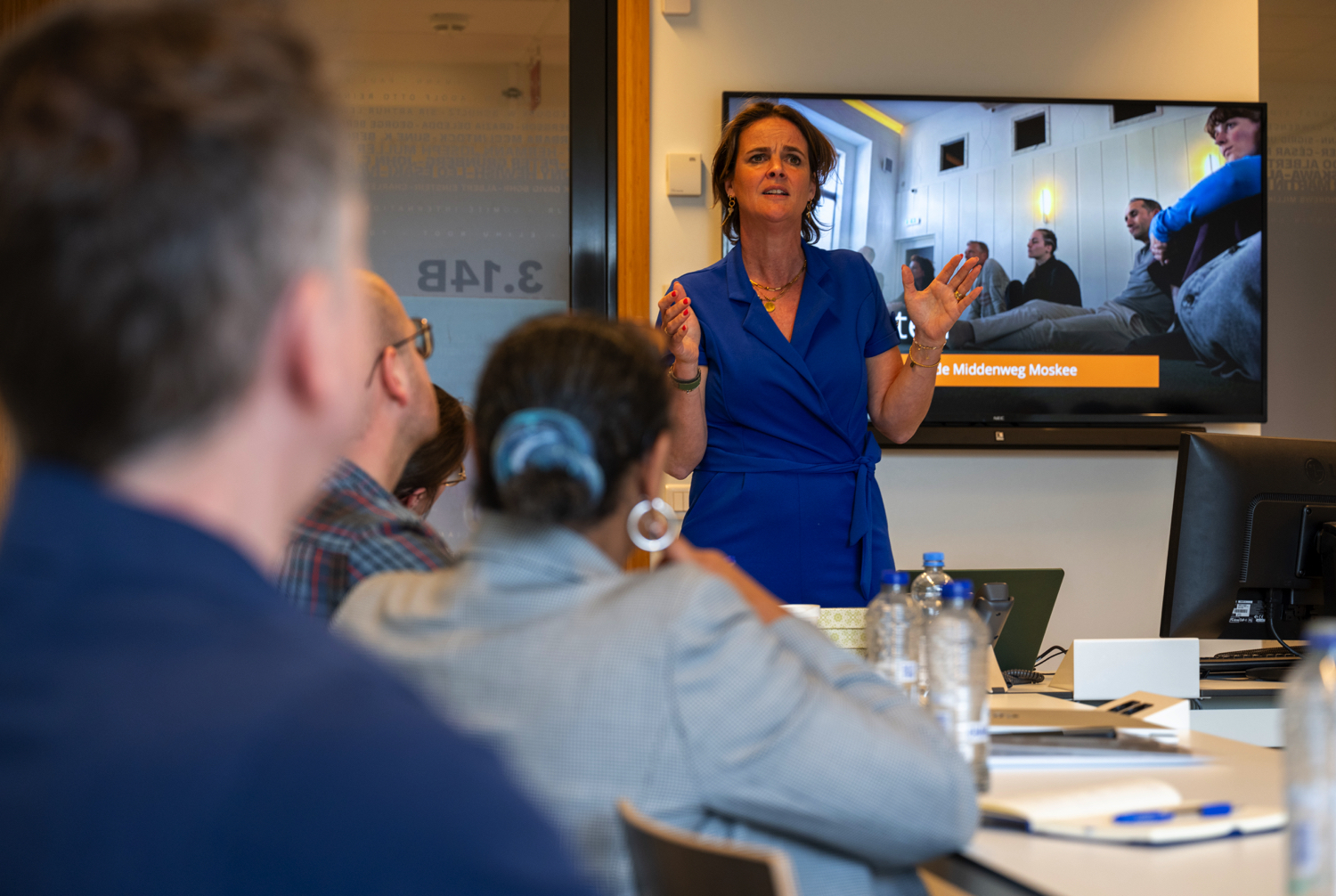
Symposium ‘Diversity and Inclusion in the Police’ a success: ‘It requires vision and expertise’
At the symposium ‘Diversity and Inclusion in the Police: from Aspiration to Reality’, the central question was how organisations can truly embody diversity and inclusion. The high level of interest (it was fully booked in no time) demonstrates that the topic is pressing—both in academia and in practice.
The day brought together a wide range of perspectives: from moral resilience to leadership, from resistance to D&I policies to the historical experiences of women in the police force. This variety of angles highlighted just how broad and deep the challenge of inclusion truly is, said Saniye Çelik, Professor by special appointment of Diversity, Inclusion and Policing, after the event. ‘And how important it is to connect academic knowledge with practical experience in tackling it.’
Shared interest in collaboration
The afternoon began with a duo interview featuring Erwin Muller (former Dean of the Faculty of Governance and Global Affairs and now Vice-Rector for Organisational Development) and Leonard Kok (Director of the Police Academy), moderated by Monica den Boer, Professor by special appointment of Police Studies.
The university and the Police Academy actively contribute to the development of expertise and knowledge regarding diversity, leadership, and legitimacy within the police through education and research. An important role in this is played by the Chair of Diversity and Inclusion at the Police, the ISGA/Police Studies team, and the Knowledge Centre for People and Police Organisations at the Police Academy.
'Effectiveness of interventions unknown'
Saniye Çelik: ‘In the session I moderated (Challenges and Effectiveness of Diversity Policy), it became clear that many organisations are still implementing interventions whose effectiveness remains unknown. Resistance was also discussed in depth – a frequently overlooked yet crucial factor in the success of inclusion policies. How do you recognise resistance? What drives it? And what does it require from leadership?’
‘The sessions covered leadership and organisational culture, but also touched on ethnic profiling, gender, neurodiversity and moral resilience. Above all, the symposium showed that diversity and inclusion demand both vision and expertise – along with sustained attention, critical reflection, and collaboration across organisational and disciplinary boundaries.’
The insights from the day will be followed up with a publication and a podcast series – to ensure the knowledge is shared more widely and put into practice.
The symposium made it particularly clear: diversity and inclusion require both vision and expertise. It calls for structural attention, critical reflection, and collaboration across organisational and disciplinary boundaries. This symposium was a first step in working together – researchers, policymakers, and professionals in practice – on this issue. 'I look back on a wonderful afternoon, during which participants engaged in conversation with an open and curious attitude,' says Maike Gieling, Lector Diversity and Inclusive Expertise of the Netherlands Police Academy. 'We would like to explore further how we can continue this work together, as the sessions sparked various valuable insights, questions, and discussion points that we can continue to address.'
The insights from this day will be followed up with a publication and a podcast series – to ensure the knowledge is shared and applied more widely.
